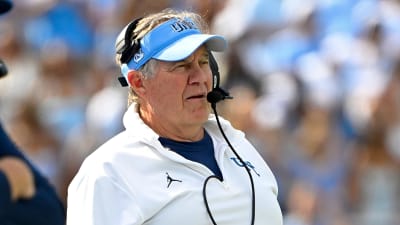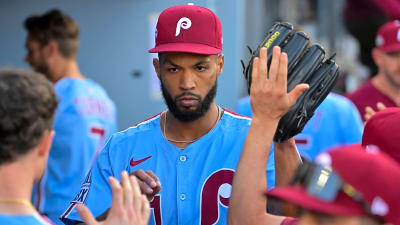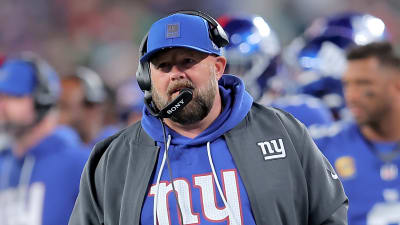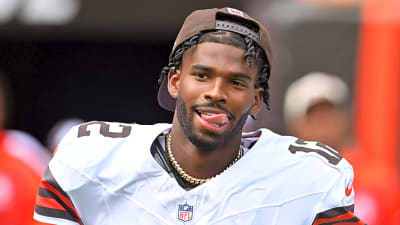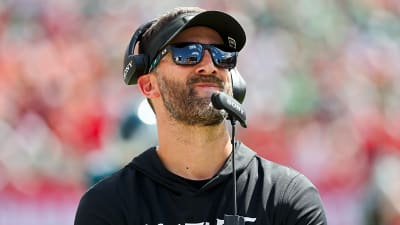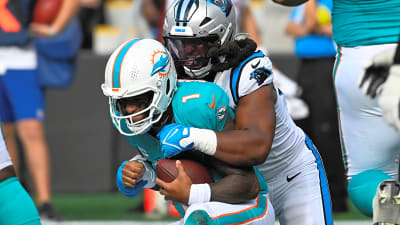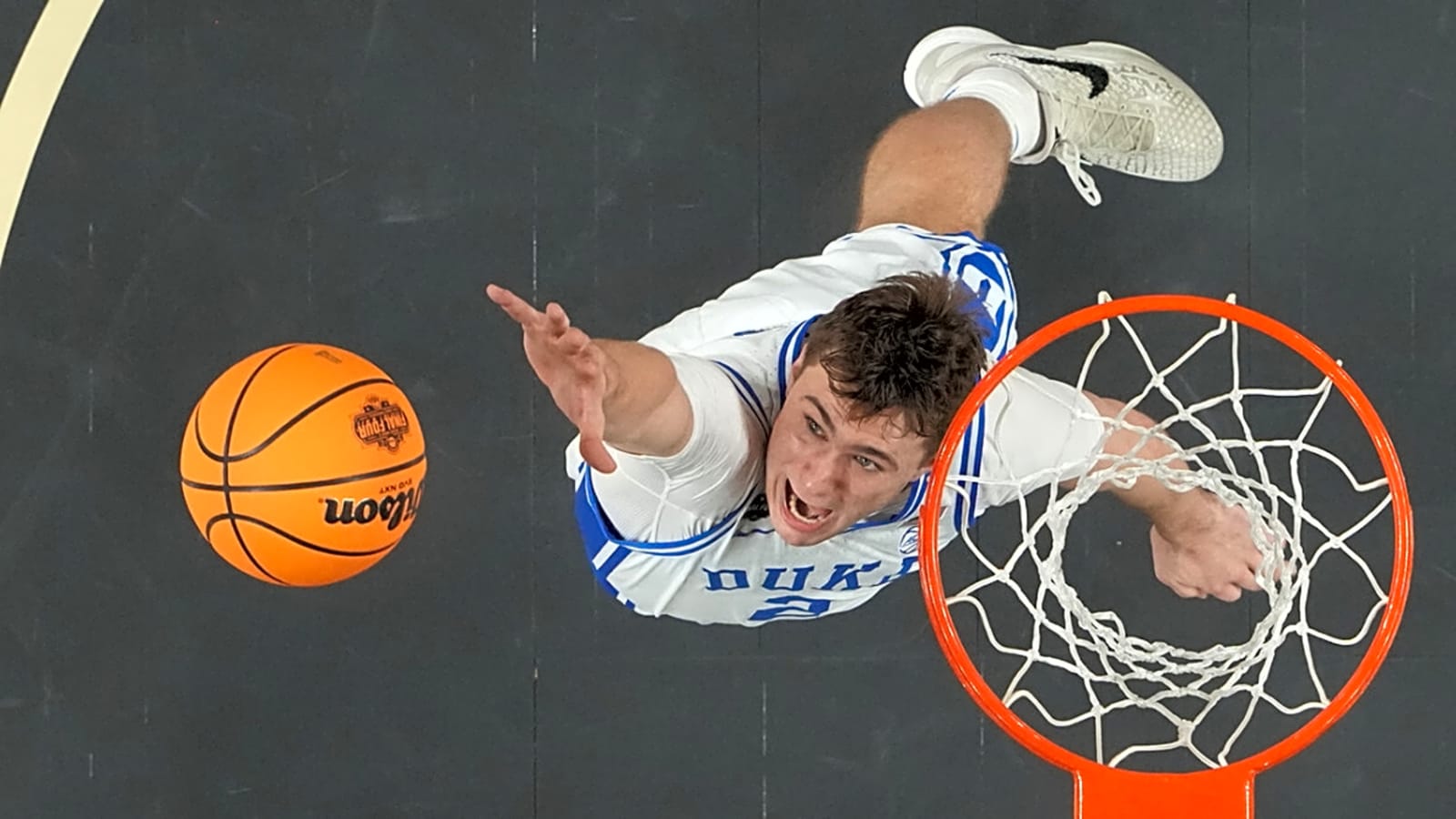
Amid all the spirited debates that front offices might have internally about the NBA Draft, rival teams expect the Dallas Mavericks to have a consensus on at least one important decision.
That involves how the Mavericks will use their No. 1 pick. Will they select Cooper Flagg or will they make another dramatic decision nearly four months after surprisingly dealing Luka Dončić to the Los Angeles Lakers?
“This one is a no brainer. This one is easy,” an NBA front office executive on an opposing team told Athlon Sports. “This is Shaq. This is LeBron [James]. Cooper clearly is the No. 1 pick.”
A question that sparks more intrigue and complexity than whether Dallas will draft Flagg: How will the 6-foot-8 star fit in with a Mavericks team filled with potential and question marks?
Unlike most teams that held the No. 1 pick in previous seasons, the Mavericks aren’t a rebuilding team that needs their future prospect to become their franchise savior instantly. That explains why the Mavericks had only a 1.8% chance to land the No. 1 pick in the NBA Draft lottery.
Dallas lost in the second round of the NBA play-in tournament as a No. 10 seed partly because Kyrie Irving suffered a season-ending injury to his left ACL with a month remaining in the regular season. For the 2025-26 campaign, Dallas could become an elite defensive team with strong rim protectors (Anthony Davis, Dereck Lively II, Daniel Gafford) and wing defenders (P.J. Washington, Naji Marshall).
Yet, the Mavericks enter next season with unanswered questions that could affect Flagg’s role.
When, if at all, will Irving return from an ACL injury that typically sidelines players from eight to 12 months? After straining his left adductor muscle in his Mavericks’ debut and staying sidelined for the next six weeks, can Davis stay more durable, as he showed during his final two seasons with the Los Angeles Lakers? How prepared will Flagg become as either a No. 1, No. 2 or No. 3 option? Will that role stay fluid throughout the season? Can Flagg give the Mavericks hope that he will become their next franchise player after they surprisingly dealt away their other franchise cornerstone during his seventh NBA season?
“That’s what makes Cooper so special. It’s his ability to adapt to his environment and impact winning in so many different ways,” Flagg’s trainer, Matt MacKenzie, told Athlon Sports. “So regardless of what his coaching staff expects from him, he’ll be able to find a way to figure it out and be able to maximize his impact based on what they need.”
MacKenzie reached that conclusion about Flagg after becoming his personal trainer in eighth grade. MacKenzie has worked with Flagg ever since in high school (Nokomis Regional, Montverde Academy) and his freshman year at Duke. Since Flagg declared himself eligible for the NBA Draft on April 21, MacKenzie also has trained with him in his home state (Maine), at Duke and in Los Angeles.
Then, Flagg worked on various drills on and off the ball to further prepare himself for an evolving role as a playmaker and shooter. Flagg also worked out with Chris Paul and Kevin Durant to observe their disciplined practice habits, which include a strong emphasis on footwork, shooting and ball handling. Last week, Flagg visited the Mavericks in what would mark his only visit with an NBA team.
Why wouldn’t it be? The Mavericks are one of many teams that became intimately aware and impressed with Flagg’s lone season at Duke. There, Flagg led the Blue Devils to a 35-4 record and a Final Four appearance while winning National Player of the Year and Wooden Award honors. Flagg averaged a 19.2 points, 7.5 rebounds and 4.2 assists per game, all team highs, while shooting 48.1% from the field and 38.5% from 3-point range. Flagg dazzled teams with both with his highlight reel dunks and fundamentally sound plays.
Even before that, Flagg took over a scrimmage last summer against NBA players when the U.S. men’s select team played against the U.S. men’s Olympic team before the Paris Games. NBA front offices and scouts expect Flagg to translate his positional versatility as a scorer, playmaker and defender into the NBA just as quickly.
“He can fit in any role immediately without any types of risks,” an NBA scout told Athlon Sports about Flagg. “He lets the game come to him. He plays well with and without the ball. He plays angles on both ends of the floor. He has great court awareness and leadership skills. He makes his teammates better, and he plays to win. He keeps that energy level high. Even when he was injured or sick, he came to compete. He’s got maturity beyond his age.”
Interestingly, the 18-year-old Flagg impressed NBA talent evaluators even through adversity.
After spraining his left ankle in the ACC Tournament quarterfinals, Flagg returned eight days later for the NCAA Tournament without any signs that the injury limited him. Though Flagg missed a potential winning shot with 17.2 seconds left against Houston in the Final Four, NBA talent evaluators liked Flagg’s confidence in taking the shot and for being upset at himself after missing it.
“The biggest thing that separates him from everybody else besides his age being so young is his competitive spirit,” an NBA front office executive on an opposing team told Athlon Sports about Flagg. “The guy is an absolute winner. He’s won at every level. He’s a winner with the way he approaches the game on both ends of the floor. Every possession counts. Every possession matters to him. You could see how crushed he was when he missed the last shot.”
Flagg presumably will play next with the Mavericks’ Summer League team in Las Vegas (July 10-20). Then, Flagg plans to focus mostly on his conditioning so he can become more equipped to handle the NBA’s 82-game schedule. Interestingly, the Mavericks cited that issue as one of the reasons behind trading Dončić to the Lakers, despite his making five All-Star appearances and All-NBA first team nods and leading Dallas to the NBA Finals last year for the first time in 13 years.
The Mavericks and Flagg surely have championship expectations, but it appears unlikely he will deliver them the same way other No. 1 picks have. Flagg doesn’t have a defined skill set, such as Magic Johnson’s passing, LeBron James’ power or Shaquille O’Neal’s size. Instead, MacKenzie and NBA talent evaluators expect Flagg to become a master of all trades.
“He just finds ways to impact the game in so many ways. I think that if it’s Dallas or another team in the NBA, his versatility is what really stands out,” MacKenzie told Athlon Sports. “It’s his ability to adapt to different environments and to take different types of coaching and be able to implement his own feel to it. I think that’s incredibly important. I think that’s what makes him a unique prospect in the NBA.”
More must-reads:
- Phillies reportedly make decision on manager Rob Thomson
- Steelers' Mike Tomlin has strong feelings about Browns trading Joe Flacco to Bengals
- The 'NFL 250-passing-yard game leaders' quiz
Breaking News
Trending News
Customize Your Newsletter
 +
+
Get the latest news and rumors, customized to your favorite sports and teams. Emailed daily. Always free!
